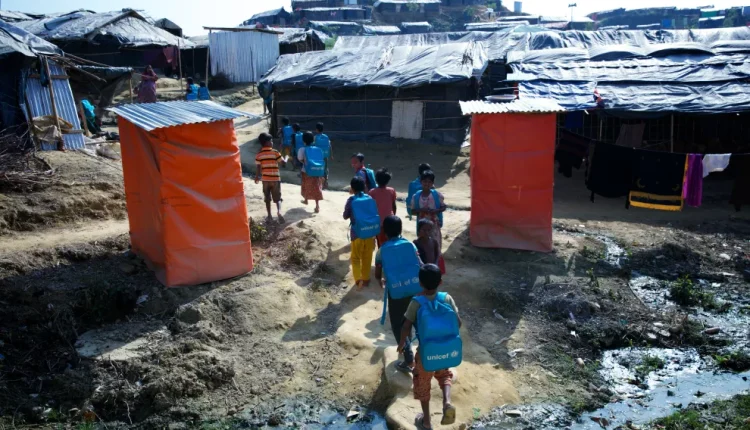DISASTER MANAGEMENT: SAVING LIVES AND ALLEVIATING SUFFERING
DISASTER MANAGEMENT: SAVING LIVES AND ALLEVIATING SUFFERING
By Bola Bakare
Humanitarian disaster management involves coordinating relief efforts to save lives, alleviate suffering, and protect human rights during and after natural disasters, conflicts and other crises.
There are parameters of disaster management that cannot be ignored but rather adhered to strictly. Prevention to mitigating risks and preparing for potential disasters, preparedness to ensure readiness to respond, response in providing immediate relief and assistance, recovery to support affected communities to rebuild and recover.
Also, concise components such as Needs Assessment to identifying affected populations and their requirements, Relief Distribution to deliver essential supplies (food, shelter, healthcare), Shelter and Housing to provide temporary and permanent solutions, Protection to ensure safety, security, and human rights, Health and Nutrition to address medical needs and preventing disease outbreaks and Water, Sanitation, and Hygiene (WASH) to ensure access to clean water and sanitation.
Whatever projections and procedures imbibed, humanitarian principles should be a binding factor. The element of humanity to prioritize human life and dignity, impartiality in providing aid based on need, regardless of race, religion, or politics, neutrality in remaining independent and unbiased and independence in maintaining autonomy in decision-making.
Concise performance on humanitarian affairs involves the cogent application of technologies and Innovations that comes from Geographic Information Systems (GIS) for damage assessment, mobile technology for communication and data collection, drones for surveillance and relief delivery and artificial Intelligence for predictive analytics and decision-making. Much as these high end techs are needed, we cannot fail to acknowledge the importance of mobility on the local level such as the use of motorbikes and boats for access to victims of disasters.
The challenges we face in humanitarian crisis warrants a futuristic approach and direction that encompasses the understanding of climate change and increasing disaster frequency, conflict and human displacement and suffering, funding and resource constraints, localization and community-led response and integrating technology and innovation.
We have witnessed notable humanitarian disasters from all over the world. Flooding, landslides, wildfires, dam collapse and overflow, wars, insecurity from terrorist, internal conflicts within nations such as Sudan, Libya and the mighty COVID 19 that perplexed the human race, the tsunamis of Indian ocean and Japan, the hurricanes and typhoons of the Americas and rampant earthquakes to mention a few.
On the Nigerian front, Book Haram and other radicalized terrorist groups operate and create displaced Nigerians that occupy IDP camps nationwide, climate change aftermath of serious floods that inundates and exacerbates whole communities with destruction to life, property and infrastructure as witnessed in Borno state and other states, gully erosions witnessed in the eastern region and ocean surges in riverine areas.
The humanitarian agencies in Nigeria all have a yeoman’s job in relief distribution, shelter and housing, protection for safety, health and nutrition, WASH (Water Sanitation and Hygiene), being humane to life and dignity, impartiality, neutrality and independence of purpose.
Read Also: Sokoto Inaugurates Committee On Sales Of Subsidized Rice, Others
The Ministry of Humanitarian Affairs as it were in conjunction with NEMA as a major humanitarian agency, the department of social welfare of the ministry of health, the NOA under the auspices of the ministry of information, NIHSA (Nigeria Hydrological Services Agency) for water data, NiMet (Nigerian Meteorology Agency) for early warning systems all have a part to play.
With the above synergy of government agencies, the onus is on NEMA to bear the full brunt of all forms of disasters and bring succor to the victims. We hope NEMA has the wherewithal within its mandate to perform with all the help it can get from the federal government.
Government participation, budget allocation, and clear deliverables are essential for effective disaster and emergency management. By prioritizing disaster risk reduction and incorporating DRBB (Disaster Risk Based Budgeting) into budget cycles, governments can build resilience and reduce the impacts of disasters on communities.
International bodies are not left out in humanitarian affairs. The United Nations Office for the Coordination of Humanitarian Affairs (OCHA), the International Committee of the Red Cross (ICRC), Non-Governmental Organizations (NGOs) and National Disaster Management Agencies NEMA (National Emergency Management Agency) and its sub nationals SEMA (State Emergency Management Agency)

